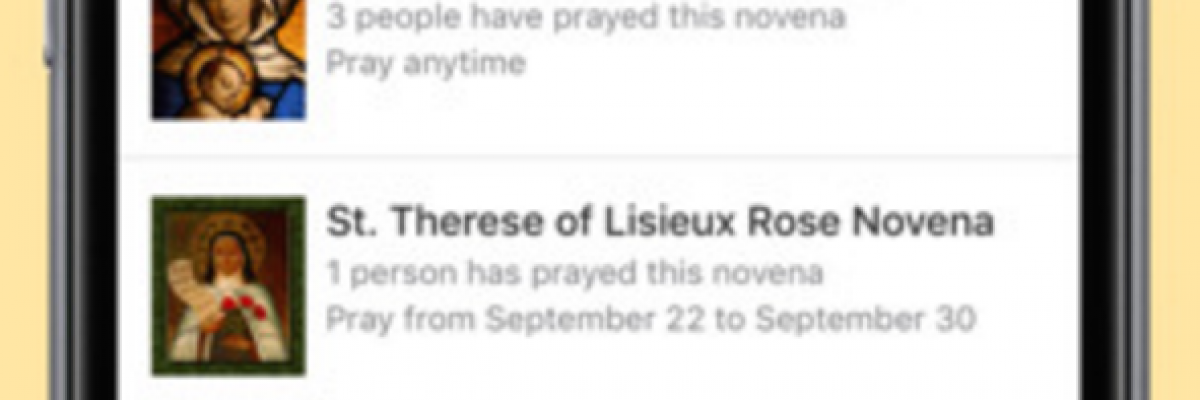
My dialogue with Steven was getting intense. Each lunch we’d meet and hash out issue after issue that divide Catholics and Protestants.
Sometimes our talks got heated, and we went away angry at each other. Steven was a smart guy—smarter than I—so I just wanted him to be able to see the truth of Catholicism.
If I could just hit the right argument or response, I knew he’d be able to. I told a Catholic friend about our discussions, and he asked me, “Have you been praying regularly for Steven?”
The short, chagrined answer was no, I hadn’t. So I started to, and a novena was the way to do it.
Nine days of a structured prayer, invoking a saint’s intercession before God, for my friend Steven to become Catholic.
Christ instituted the first novena
Just before his Ascension, Jesus told the apostles to go to Jerusalem and wait for the Holy Spirit to come.
They were with Mary for nine days, praying and waiting for the Paraclete. This is likely the origin of novenas, and still today we pray the Novena to the Holy Spirit between Ascension and Pentecost. (You can find a more in-depth history of novenas in this fascinating article.)
Throughout the Church’s history, Christians began praying novenas for particular intentions. Novenas offer a focused way to pray for something specific. Most are nine days, but some are thirty days or even longer.
I prayed multiple novenas to St. Joseph for the grace to find my future wife. On the last one, I challenged him with the request to meet her within six months. A few months later, Catherine and I met.
Novenas are not magic, of course, and we avoid superstition with them. Ultimately we are praying for God’s will to be done with our intention. That may end up being what we think is best; but it may not be, and so we also pray for the grace to accept what he decides, trusting that it is for our best.
Praying novenas together
One of my great temptations as an apologist is to think I can argue people into the Church apart from prayer. I need frequent reminders that only by God’s grace can someone enter the Church, and grace is obtained through prayer.
Now I stop and think when I am entering into dialogue with a non-Catholic: what is a good way for me to pray for them consistently during our time of discussion and beyond? Of course, the Church’s treasury of prayers gives us many options, but novenas are one of the best.
Oftentimes we can find a saint who is the patron or patroness of a particular intention: finding a spouse, a vocation, an avocation or trade, healing from an illness, help on taking exams, a smooth childbirth.
We get to know that saint better as we learn about him or her and ask for his or her prayers in the communion of saints. We are encouraged to imitate the saint’s heroic virtue and in doing so imitate Christ.
One of the challenges with praying novenas is remembering which day you are on. I must admit that I’ve started novenas and then midway through forgotten about them, only later realizing my mistake.
Another challenge is inviting friends or family to pray a novena with you for a specific intention: how do you coordinate it? Which version of the novena do you pray? These are not insurmountable problems, but they can be annoying and make it more difficult to pray together in this traditional way.
Because I’m a computer programmer by day, I took a hack at solving some of these annoyances and made an iPhone app for praying novenas. It’s free, and it lets you invite your friends to pray a novena with you; then it reminds you to pray it in case you forget.
I find myself praying multiple novenas at a time—it’s easy, because it gives you the day’s prayers automatically and tracks which day you are on. Now I’m equipped to pray in earnest for each of the people with whom I am in dialogue, that they too might enter the richness and beauty of the Catholic Church.
Happy praying!



